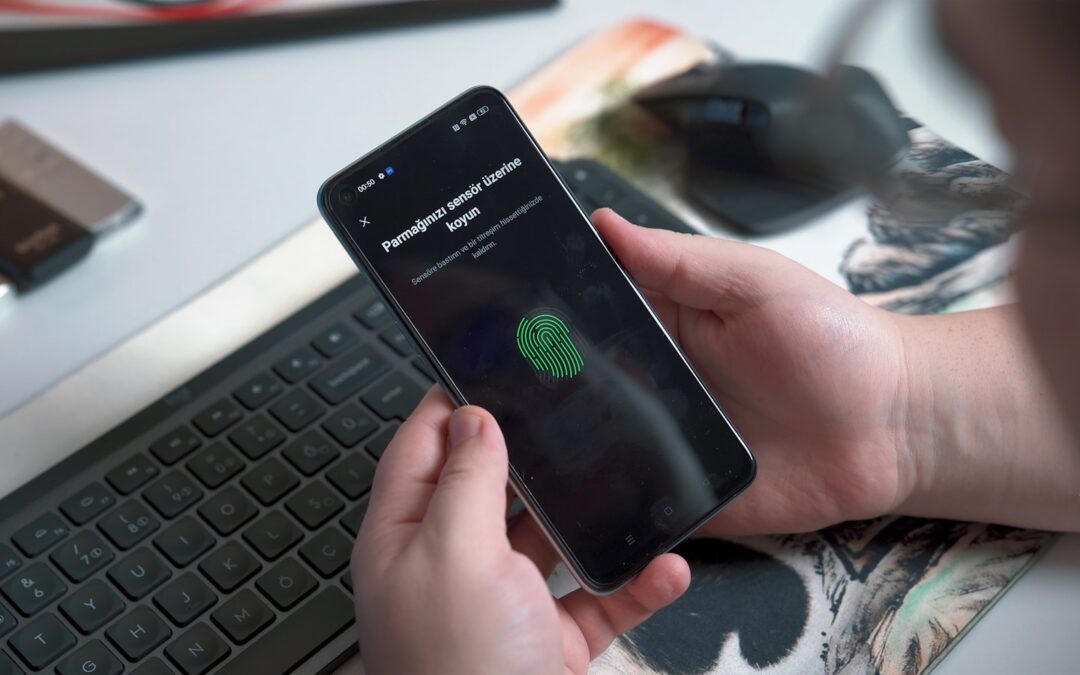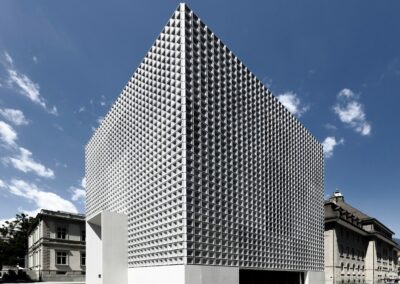Leveraging Advanced Technology for Secure and Personalized Guest Experiences
The Role of Biometric Recognition Systems in Modern Hospitality
The integration of biometric recognition systems, such as fingerprint or facial recognition, into hotel operations represents a significant advancement in security and personalization. For business executives, mid-level managers, and entrepreneurs traveling to major business hubs like Saudi Arabia, UAE, Riyadh, and Dubai, these technologies offer enhanced security measures while also providing a more personalized guest experience.
Biometric recognition systems leverage the unique physiological characteristics of individuals to verify their identity, ensuring that only authorized persons can access certain areas. For example, a hotel in Riyadh might use facial recognition technology to allow guests to access their rooms without the need for physical keys or cards. This not only enhances security but also adds a layer of convenience, as guests do not have to worry about losing their keys.
Additionally, these systems can be integrated with other hotel services to create a seamless and personalized experience. Upon arrival, a guest’s biometric data can be used to personalize their room settings, such as lighting, temperature, and even preferred television channels. For instance, a business executive from Dubai staying at a hotel in Riyadh could have their room automatically adjusted to their preferences upon entering, providing a high level of comfort and satisfaction.
Enhancing Security through Advanced Technology
The use of biometric recognition systems significantly enhances security in the hospitality industry. Traditional methods of room access, such as physical keys or cards, are susceptible to loss or theft, potentially compromising guest safety. Biometric systems, on the other hand, provide a highly secure alternative as they rely on unique biological traits that are difficult to replicate or forge.
In Dubai, for example, hotels that cater to high-profile business executives and entrepreneurs can utilize fingerprint recognition systems to ensure that only the registered guest can access their room. This technology can be extended to other areas of the hotel, such as exclusive lounges, meeting rooms, and fitness centers, ensuring that these facilities are used only by authorized individuals.
Moreover, biometric recognition systems can be integrated with other security measures, such as surveillance cameras and emergency response systems, to provide a comprehensive security solution. For instance, a hotel in Saudi Arabia could use facial recognition technology in conjunction with CCTV cameras to monitor guest movements and identify any suspicious activities, thereby enhancing overall security.
Personalization: Creating Unique Guest Experiences
Personalization is a key trend in the modern hospitality industry, and biometric recognition systems play a crucial role in delivering customized experiences to guests. By using biometric data, hotels can offer tailored services that meet the specific needs and preferences of each guest, enhancing their overall stay.
For example, a hotel in Riyadh could use facial recognition technology to greet returning guests by name and provide them with personalized welcome messages. This level of personalization can extend to in-room services, where the system adjusts room settings based on the guest’s previous stays. A mid-level manager from the UAE visiting a hotel in Riyadh might find their room configured to their preferred temperature, lighting, and even the type of music they enjoy, all based on their biometric profile.
Additionally, biometric recognition systems can streamline the check-in and check-out process, reducing wait times and enhancing the guest experience. Guests can check-in online using their biometric data and proceed directly to their room upon arrival, bypassing the front desk. This not only provides convenience but also ensures a smooth and efficient process, particularly for busy business travelers.
Implementing Biometric Recognition Systems in Hospitality
Choosing the Right Biometric Technologies
When implementing biometric recognition systems, it is crucial for hotels to choose the right technologies that align with their security and personalization goals. This involves selecting biometric modalities that are both secure and user-friendly. Facial recognition and fingerprint scanning are the most commonly used modalities due to their accuracy and ease of use.
Hotels in Dubai, for instance, might opt for facial recognition technology at entry points to ensure a seamless and secure check-in process. This technology can be complemented by fingerprint scanners for room access, providing an additional layer of security. By combining multiple biometric modalities, hotels can offer robust security solutions while enhancing guest convenience.
Another important consideration is the integration of biometric systems with existing hotel infrastructure. This includes ensuring compatibility with current security systems, management software, and guest service platforms. For example, a hotel in Saudi Arabia might integrate biometric recognition systems with its property management system to streamline guest authentication and personalize service delivery.
Ensuring Privacy and Data Security
The implementation of biometric recognition systems necessitates a strong focus on privacy and data security. Guests must be assured that their biometric data will be handled with the highest level of security and confidentiality. Hotels must adhere to strict data protection regulations and implement robust security measures to safeguard biometric information.
This involves using encryption and secure storage solutions to protect biometric data from unauthorized access. For instance, a hotel in Riyadh could use advanced encryption methods to store facial recognition data securely, ensuring that it is accessible only to authorized personnel. Additionally, hotels should implement regular security audits and updates to maintain the integrity of their biometric systems.
Transparency is also crucial in building guest trust. Hotels should clearly communicate their biometric data policies, including how the data will be used, stored, and protected. This can be achieved through comprehensive privacy policies and guest consent forms that outline the terms of biometric data usage. For example, a hotel in Dubai might provide guests with detailed information on its biometric data practices during the check-in process.
Training Staff and Enhancing Guest Experience
Effective implementation of biometric recognition systems requires thorough training for hotel staff. Staff members must be well-versed in using and managing biometric technologies to ensure smooth operations and address any guest concerns. This includes training on how to enroll guests into the biometric system, troubleshoot common issues, and maintain the security of biometric data.
In Riyadh, for example, hotel staff could receive training on the use of facial recognition technology for guest check-in and room access. This training should cover both technical aspects and customer service skills to ensure that staff can assist guests effectively and provide a seamless experience.
Enhancing guest experience through biometric recognition also involves educating guests about the benefits and usage of the technology. Hotels can provide informational materials and demonstrations to familiarize guests with biometric systems. For instance, a hotel in the UAE might offer a brief tutorial during check-in to explain how facial recognition will be used to enhance their stay and ensure their security.
Conclusion
The integration of biometric recognition systems in the hospitality industry offers significant benefits in terms of security and personalization. By leveraging advanced technologies such as facial and fingerprint recognition, hotels can provide secure and customized experiences that meet the needs of modern travelers. The implementation of these systems in major business hubs like Saudi Arabia, UAE, Riyadh, and Dubai can enhance guest satisfaction and loyalty, positioning these destinations as leaders in innovative and secure hospitality.
As technology continues to evolve, the potential for biometric recognition systems in hospitality will expand, offering new opportunities for enhancing guest experiences. Embracing these technologies is essential for hotels to stay competitive and meet the growing expectations of business executives, mid-level managers, and entrepreneurs. By prioritizing security, personalization, and data privacy, hotels can create a welcoming and trustworthy environment for all guests.
—
#BiometricRecognition, #HotelTechnology, #SecurityTechnology, #FacialRecognition, #FingerprintRecognition, #PersonalizedExperience, #SaudiArabia, #UAE, #Riyadh, #Dubai, #ArtificialIntelligence, #Blockchain, #Metaverse, #GenerativeAI, #ModernTechnology, #BusinessSuccess, #Leadership, #ManagementSkills, #ProjectManagement























